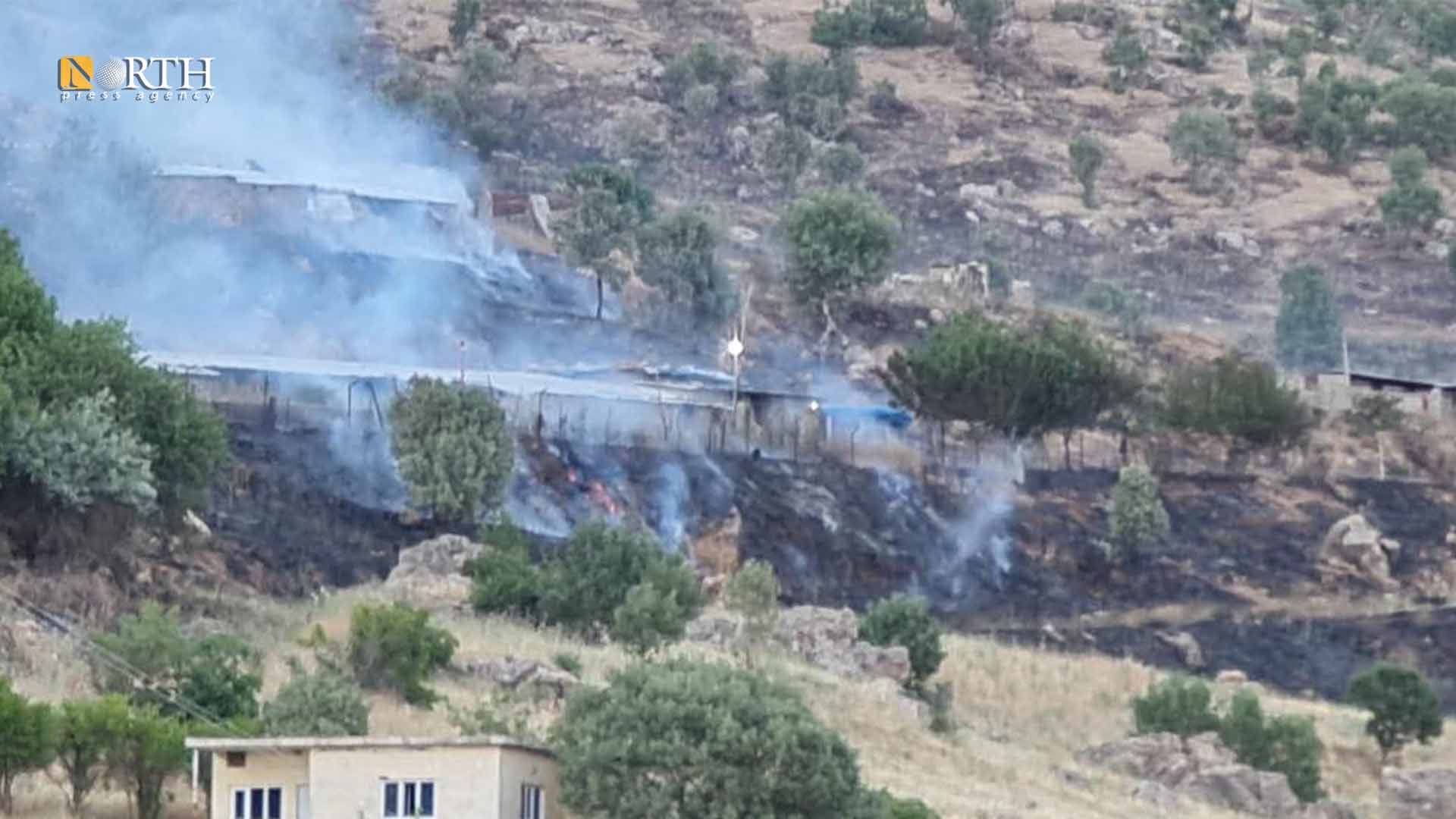Turkish bombing of Kurdistan causes humanitarian catastrophe
ERBIL, KRG, Iraq (North Press) – On Saturday, Hirsh Rashid, a civil activist living in Duhok Governorate in the Kurdistan Region of Iraq, held international organizations responsible for providing the daily needs of the displaced who fled the Turkish bombing of their villages in Amadiya (Amedi) district.
Since last April, the Turkish army has launched an air and ground attack on border areas with the Kurdistan region of Iraq, under the pretext of the presence of PKK fighters.
Residents and eyewitnesses from the area, however, say that the residents of the villages are the most affected, especially after the Turkish army’s incursion into the territory of the Kurdistan region.
Rashid said that “the UN must help the IDPs as it helped the people of al-Mosul and Sinjar.”
“Five villages have been totally emptied due to the Turkish bombing, and the villagers went to their relatives in Duhok, Zakho, and Simel,” he told North Press.
“Some villages like Orah and Hurorah are besieged and Turkey does not allow the villagers to carry out their agricultural work and secure their daily needs,” he added.
The civil activist called on the Kurdistan Regional Government “ to deliver more humanitarian aid the IDPs.”
Rashid, who spent three days documenting the events in Amedi district, said: “the Turkish bombardment destroyed the power grid and the water pipes have also been damaged over last days.”
The activist said that “there are hundreds of media agencies in Duhok, Hewler [Erbil] and Sulaymaniyah, but they haven’t visited those villages which are under constant Turkish bombardment.”
Early in June, a group of activists and civil society organizations held a press conference in Erbil, Kurdistan Region of Iraq, in which they called on the leaders of the governments of the Kurdistan region and Iraq, to act to stop the Turkish attacks on Kurdistan.
The statement described the Turkish intervention in the territory of Kurdistan region with a depth of 40 km as a major catastrophe that harms people and stones.
Bahra Muhammad Amin, a civil activist, told North Press that they are waiting for urgent action by the leaders of Erbil and Baghdad.
“Unfortunately, Bahdinan is now witnessing unfortunate events that are not related to Bahdinan only, but to all the people of Kurdistan,” Muhammad Amin added.
Over the past two months, residents of the Amedi district (Amadiya) have expressed their dissatisfaction with the repeated Turkish bombing of their villages, which many of them have turned into empty places.
Since last April, these villages have witnessed the launching of Turkish warplanes, air raids, which included the mountainous surroundings of Gharah and Matin in Duhok Governorate.
Earlier, Sadiq Abdulaziz, a university professor from the village of Radin in Duhok, told North Press that his entire village is now deserted. “We as a family cannot go there, because we expect at every moment a Turkish bombardment that kills us.”
Turkish warplanes bombed the villages of Korko and Banafi, located on the slopes of Mount Matin in the district, as well as the village of Kafia and other sites at the foot of Mount Gharah at different times during the last period.
“There are no survivors of the bombing,” Serwer Rizeki, a psychiatrist, said.
“The bombing brings to mind all the grievances and Anfal that the Kurds had experienced, and many of the people of those areas suffer from trauma and sleep disturbances,” he told North Press in a previous interview.

